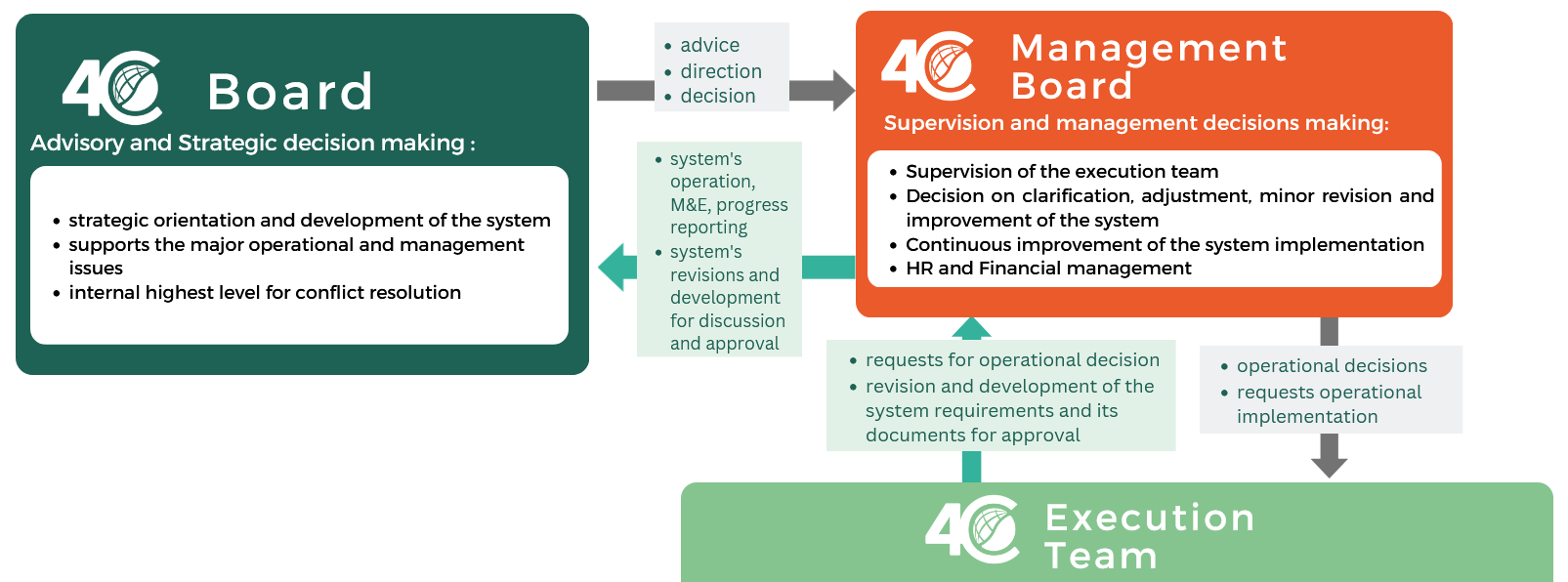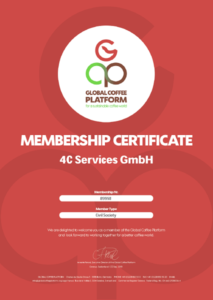Multi-Stakeholders Initiative and Governance
The 4C Code of Conduct
The 4C Code of Conduct was developed in a participatory and transparent multi-stakeholder process involving coffee producers, trade and industry as well as various civil society organizations from around the world. In line with the recommendations of the ISEAL Alliance for credible sustainability standard systems, the 4C Code of Conduct is reviewed, and revised if necessary, at an interval of every five years in a multi-stakeholder process. Once the document revision is finalized, the new 4C Code of Conduct is communicated to all 4C System users with the need to be implemented after a reasonable transition period of six to twelve months, depending on the changes .
The 4C Board
The 4C Board (since 2017) has an advisory and strategic decision-making function. The 4C Board supports the Management Board in strategic orientation and development of the system, major operational and managerial issues. The 4C Board consists of representatives of 4C stakeholder groups (coffee growers, traders, roasters, retailers, brand owners, civil society organizations, research). The 4C Board is chaired by an independent Chairperson who is supported by Vice Chairperson. Role and responsibilities of the 4C Board, as well as decision-making mechanisms, are transparently described in the 4C Advisory Board By-Law of the 4C Board which is publicly available on the 4C website. To get to know the current members of the 4C Board, please click here.
4C Management Board
The Management Board is the political, strategic decision-making and operational management body of 4C.
The Management Board leadership includes the Managing Director, Dr. Norbert Schmitz, the Head of People and Culture, Lisa Mies and the Financial Management Advisors Team.
The Management Board works closely with the 4C Board to receive advice, direction and decisions on strategic issues and directly supervises the work of the 4C Execution team. Decisions on the clarification, adjustment/revision and improvement of the system are the key responsibilities of the Managing Director.
4C Execution Team
The Execution team consists of diverse expertise in regenerative agriculture, business management, farmers capacity building and certification. The team performs day-to-day operational work and is in close communication with and support System users.
Stakeholders
Stakeholders do have the possibility to engage with 4C by giving feedback to the system through public consultations, directly via email, webforms, over telephone or in person or through the participation at our globally and regionally organized stakeholder conferences.
Certification Bodies (CBs) are another important stakeholder group for 4C. In the framework of regular trainings, biannual meetings and/or webinars specifically convened for the representatives of recognized CBs cooperating with 4C, CBs can provide feedback in relation to the daily application of 4C to facilitate the continuous improvements of the 4C System.
4C Engagement into External Multi-Stakeholders Processes
4C Services is a member of the Global Coffee Platform (GCP). Additionally, 4C Services is a member of the Technical Committee of GCP and contributes to the Global Coffee Platform with technical input from a certification perspective to processes such as standard development and/or revision and interpretation. For further information on 4C memberships and partnerships, please click here.

